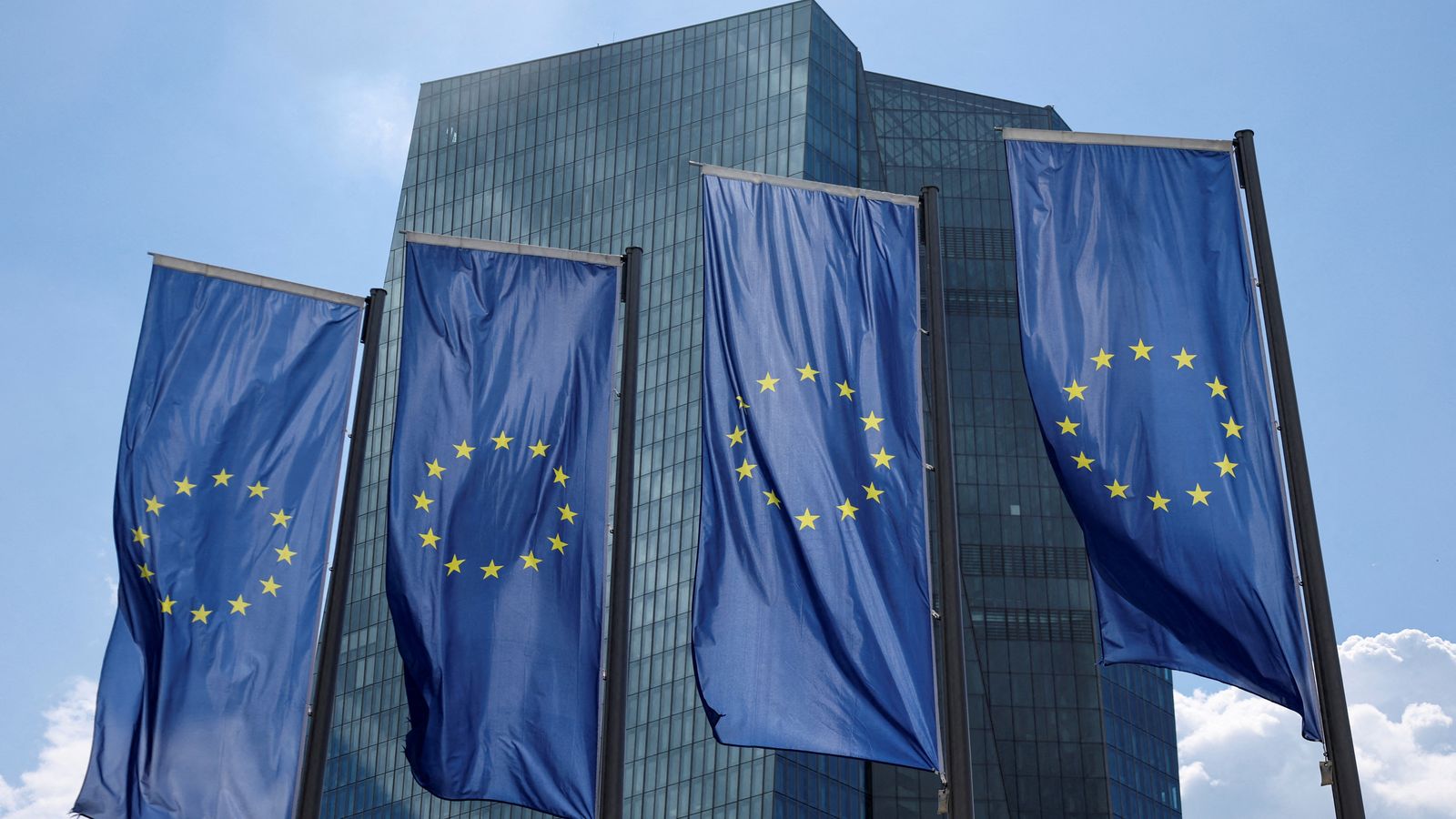The 20 countries using the euro were officially in recession over the winter, latest statistics show.
Revised data from the European statistics office, Eurostat, showed the eurozone economy contracted 0.1% in the first three months of this year and the final three months of 2022.
The group of countries therefore met the definition of a technical recession: two-quarters of negative economic growth.
Not since the COVID pandemic has there been a six-month period where the economy shrank.
Previous estimates from Eurostat had shown a stagnant economy but these have since been revised downwards. The European Central Bank (ECB) was expecting no growth but did not forecast contraction.
Today’s figures also show Ireland and Greece had winter recessions. Ireland had the worst gross domestic product (GDP) contraction – the economy is reported to have shrunk 4.6% from January to March.
GDP measures the sum total of everything produced in the economy.
At the same time Ireland has a record budget surplus of billions of euro – mostly derived from tax from a handful of multinationals – casting doubt over the figures.
Germany was declared as being in recession earlier this month and no growth has been recorded in Lithuania since 2021.
Whether the countries and the eurozone are still in recession is not known as second-quarter figures for 2023 have yet to be published.
Read more business
First-time crypto investors to be offered ‘cooling-off’ period under new rules
WhatsApp adding Twitter-like ability to follow with new ‘channels’ feature
The 20 countries all struggled with high energy costs, particularly over winter, as they attempted to reduce reliance on Russian oil and gas, following the invasion of Ukraine.
Prices reached new highs as the West scrambled to find alternative sources of gas, which most European countries depend on to produce electricity and heat homes.
Those high energy costs filtered into food production, pushing up the cost of household food bills.
The UK economy has also shrunk, according to latest official figures. Despite slight growth in the first three months of the year there was a 0.3% contraction in March.
Growth of 0.1% was recorded by the Office of National Statistics (ONS) in the three months of the year, the lowest amount possible to still be classed as growth as IT and construction sector activity offset the impact of strikes.
This story originally appeared on Skynews

